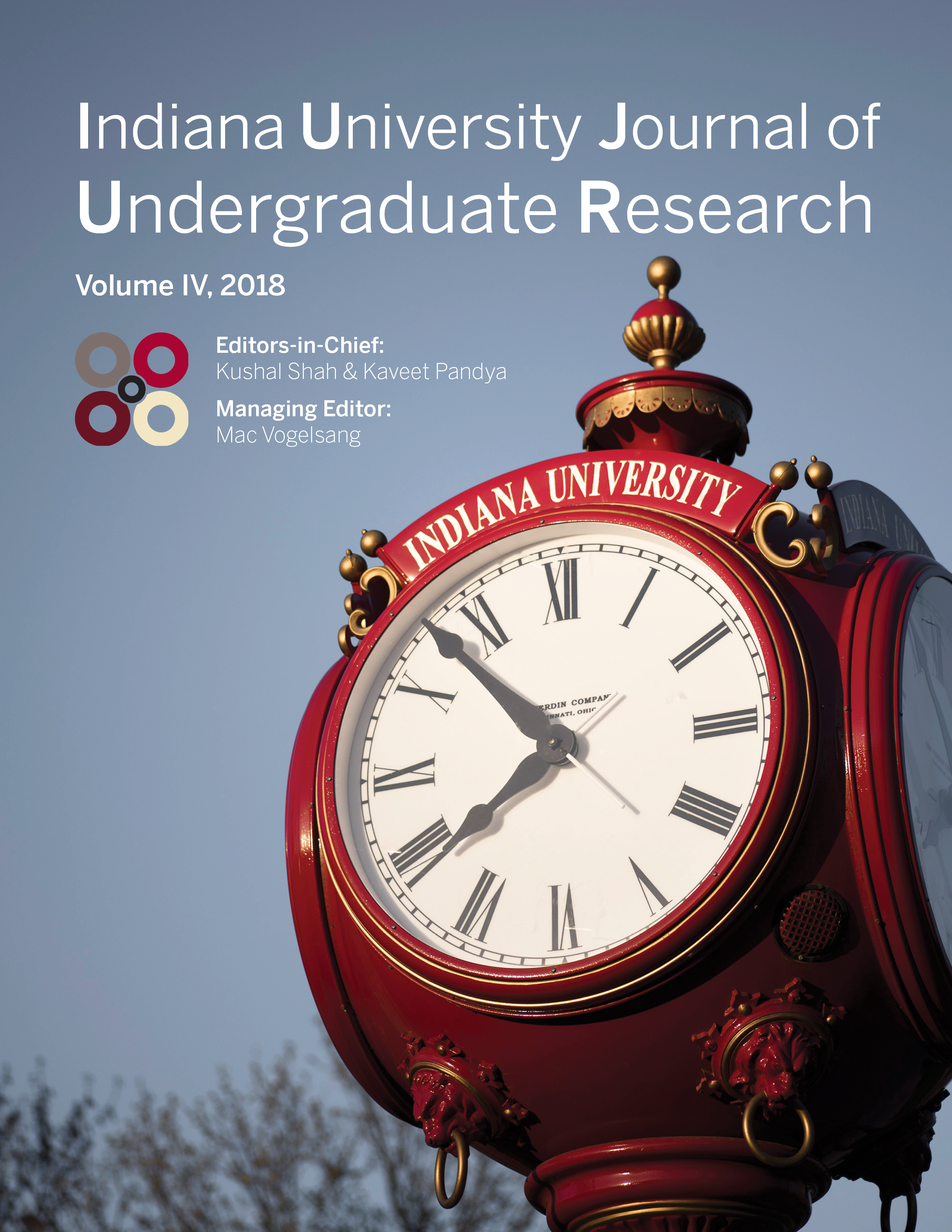The Chilean Winter: A Student Revolution
Main Article Content
Abstract
The 2011 Chilean Winter was a student movement that fought to end the rampant inequality found in the nation’s neoliberal education policies, which found their origins in the reforms enacted during the 1980s by Chilean dictator General Augusto Pinochet. In response to the nation’s economic crisis, he attempted to cut government spending by decentralizing and privatizing the education system. The results were largely unfavorable; Chilean education came to be known for its socioeconomic stratification, unequal schools, and its exorbitantly expensive universities. Despite the undoubtedly negative outcome of Pinochet’s policies, they remained relatively untouched until student movements in 2006 and 2011 began to challenge them. Although almost all of the issues that the 2011 Chilean Winter addressed were the result of Pinochet’s policies, it would be incorrect to claim that the students were protesting his reforms. Instead, the movement was a reaction to the failure of the nation’s post-dictatorship governments, the Concertación coalition and right-centrist presidency of Sebastián Piñera, to restructure Chile’s neoliberal education system despite its numerous problems. This work aims to disprove the erroneous view of many newspapers and academic journals that the student movement was caused directly by Pinochet’s policies. In other words, I wish to separate protest against the legacy of the Pinochet reforms—that is the current system—from protest against the reforms themselves. The work will be divided into two main sections. The first section will focus on demonstrating the lasting impact of Pinochet’s education programs, with a particular emphasis on statistical studies performed by other researchers. The second section will be devoted to analyzing the roots of the 2011 student movement. This part of the investigation will focus on rhetoric from the students themselves, especially movement leader Camila Vallejo.
Downloads
Article Details
Authors who publish with this journal agree to the following terms:
- Ownership of the copyright shall remain with the Author, subject to IUJUR’s use and the rights granted by the Creative Commons license assigned by the Author. A Creative Commons Attribution-NonCommercial 4.0 International (CC BY-NC 4.0) license will be applied to the published work unless otherwise indicated in the Student Author Contract. The CC BY-NC 4.0 license (https://creativecommons.org/licenses/by-nc/4.0/) lets others remix, tweak, and build upon the published Work non-commercially, and although the new works must also acknowledge the original IUJUR publication and be noncommercial, they don’t have to license their derivative works on the same terms.Authors are able to enter into separate, additional contractual arrangements for the non-exclusive distribution of the journal's published version of the work (e.g., post it to an institutional repository or publish it in a book), with an acknowledgement of its initial publication in this journal.
- Authors are permitted and encouraged to post their work online (e.g., in institutional repositories or on their website) prior to and during the submission process, as it can lead to productive exchanges, as well as earlier and greater citation of published work (See The Effect of Open Access).
References
Achtenberg, Emily. “Chilean students struggle to deepeneducational reforms.” North American Congress on Latin America, June 2015. https://nacla.org/blog/2015/03/03/chilean-students-struggle-deepen-educational-reforms.
Bellei, Cristián and Cristian Cabalin. “Chilean student movements: Sustained struggle to transform a market-oriented educational system.” Current Issues in Comparative Education 15, no. 2 (2013): 108-123.
Carnoy, Martin. “National voucher plans in Chile and Sweden: Did privatization reforms make for better education?” Comparative Education Review 42, no. 3 (1998): 309-337.
Christian, Shirley. “Goal in Chile: Fiscal change with stability.” New York Times, August 28, 1989.
Collyns, Dan. “Bachelet pledges radical constitutional reforms after winning Chilean election.” The Guardian. December 2013. http://www.theguardian.com/world /2013/dec/ 16/chile-president- elect-michelle-bachelet-election-reforms.
Couso, Javier. “Trying democracy in the shadow of an authoritarian legality: Chile’s transition to democracy and Pinochet’s Constitution of 1980.” Wisconsin International Law Journal 29, no. 2 (2011): 394-415.
“The failings of Chile’s education system: Institutionalized inequality and a preference for the affluent.” Council on Hemispheric Affairs. July 2008. http://www.coha.org/the-failings-of-chile’s-education-system-institutionalized-inequality-and-a-preference-for-the-affluent/.
Elacqua, Gregory. “Enrollment practices in response to vouchers: Evidence from Chile.” National Center for the Study of Privatization in Education (2006).
Goldman, Francisco. “Camila Vallejo, the world’s most glamorous revolutionary.” New York Times Magazine. April 2012. http://www.nytimes.com/2012/04/08/magazine/ camila-vallejo-the-worlds-most-glamorous -revolutionary.html.
Gumucio, Rafael. “Padres nihilistas, hijos realistas.” Gatopardo. March 2013. http://www.gatopardo.com/reportajes/padres-nihilistas-hijos-realistas/.
Hsieh, Chang-Tai and Miguel Urquiola. “The effects of generalized school choice on achievement and stratification: Evidence from Chile’s voucher program.” Journal of Public Economics 90, no. 8-9 (2006): 1477-1503.
Hurtado, Maria. “Free tuition for students from 50% poorest families.” UniversityWorldNews, January 2016. http://www.universityworldnews.com/article.php?story=20160106154 515871.
Matear, Ann. “Barriers to equitable access: Higher education policy and practice in Chile since 1990.” Higher Education Policy 19, no. 6 (2006): 31-49.
Muñoz-Lamartine, Ernesto. “Student leaders reinvent the protest.” Berkley Review of Latin American Studies (2011-2012): 25-30.
Reuters. “Chile Thriller Protest.” Filmed [June 2011]. YouTube video, 1:06. Posted [June 2011]. https://www.youtube.com/watch?v=sVjqtxGr1nY.
Rohter, Larry. “Chilean promised a New Deal; Now striking youth demand it.” New York Times. June 2006. http://www.nytimes.com/2006/06/05/world/americas/05chile.html.
Ros, Ana. The post-dictatorship generation in Argentina, Chile, and Uruguay: Collective memory and cultural production. New York: Palgrave Macmillan, 2012.
Schiefelbein, Ernesto and Paulina Schiefelbein. “Three decentralization strategies in two decades: Chile 1981-2000.” Journal of Educational Administration 38, no. 4 (2000).
Sepúlveda, Orlando. “Biggest mass movement since Pinochet: Chilean students launch mass protests.” International Socialist Review 49 (2006).
Taylor, Marcus. From Pinochet to the ‘third way’: neoliberalism and social transformation in Chile. Ann Arbor: Pluto Press, 2006.
Torche, Florencia. “Privatization reform and inequality of educational opportunity: The case of Chile.” Sociology of Education 78, no. 4 (2005): 316-343.
“The tradeoff of labor and neoliberal economics: The case of Chile in the 1990s.” Council on Hemispheric Affairs. August 2011. http://www.coha.org/the-tradeoff-of-labor-and-neoliberal-economics-the-case-of-chile-in-the-1990s/.
Vallejo, Camila. Podemos cambiar el mundo. Chile: Ocean Sur, 2012.
Wal, Aleida van der. “Decentralization of education in Chile: A case of institutionalized class segregation.” Master’s thesis, Leiden University, 2007.

